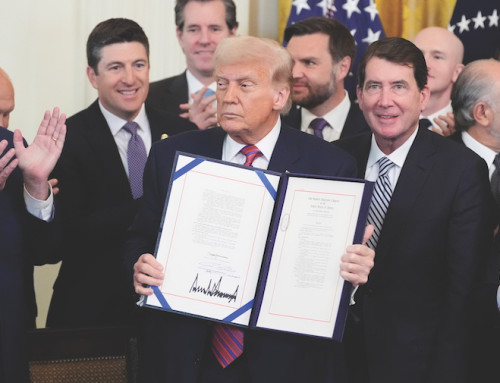NEW YORK (AP) — The U.S. Department of Labor is aiming to rewrite or repeal more than 60 workplace regulations, ranging from minimum wage requirements for home health-care workers and people with disabilities to standards governing exposure to harmful substances.
If approved, the changes unveiled this month also would affect working conditions at construction sites and in mines, and limit the government’s ability to penalize employers if workers are injured or killed while engaging in inherently risky activities such as movie stunts or animal training.
The Labor Department says the goal is to reduce costly, burdensome rules imposed under previous administrations.
“The Department of Labor is proud to lead the way by eliminating unnecessary regulations that stifle growth and limit opportunity,” Secretary of Labor Lori Chavez-DeRemer said in a statement, which boasted the “most ambitious proposal to slash red tape of any department across the federal government.”
Critics say the proposals would put workers at greater risk of harm.
“People are at very great risk of dying on the job already,” Rebecca Reindel, the AFL-CIO union’s occupational safety and health director, said. “This is something that is only going to make the problem worse.”
The proposed changes have several stages to get through before they can take effect, including a public comment period for each one.
One rollback under consideration is no minimum wage for home health-care workers.
Home health-care workers help elderly or medically fragile people by preparing meals, administering medications, assisting with toilet use, accompanying clients to doctor appointments and performing other tasks.
Under one of the Labor Department’s proposals, an estimated 3.7 million workers employed by home-care agencies could be paid below the federal minimum wage — currently $7.25 per hour — and made ineligible for overtime pay if they aren’t covered by corresponding state laws.
The Independent Women’s Forum, a nonprofit based in Virginia, backs the move.
Women often bear the brunt of family caregiving responsibilities, so making home-care more affordable would help women balance work and personal responsibilities, the group’s president, Carrie Lukas, said.
The department may also rollback protections for migrant workers. Last year, the Labor Department finalized rules that provided protections to migrant farmworkers who held H-2A visas.
The current administration says most of those rules placed unnecessary and costly requirements on employers. Under the new proposal, the Labor Department would rescind a requirement for most employer-provided transportation to have seat belts for those agriculture workers.
The department is also proposing to reverse a 2024 rule that protected migrant farmworkers from retaliation for activities such as filing a complaint, testifying or participating in an investigation, hearing or proceeding.
The Occupational Safety and Health Administration, part of the Labor Department, meanwhile, wants to rescind a requirement for employers to provide adequate lighting at construction sites, saying the regulation doesn’t substantially reduce a significant risk.









